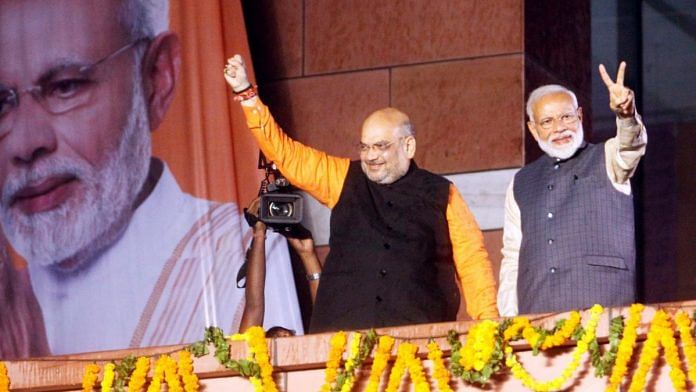Do they really think that their offer of money lessens the grief of the families? Or is it a cover-up for the incompetence of the ruling dispensation, which fails the people, be it a terror attack or a rail accident, or a bridge collapse?
Just think of their mindset. Eighteen people died in a stampede at the New Delhi Railway Station on 15 February. reported that in the early hours of 16 February, when the families of those killed arrived at the hospital to collect their bodies, they were given bundles of Rs. 100 and Rs. 500 notes, totaling Rs 10 lakh.
The Indian Railways had announced Rs 10 lakh for the kin of the deceased, Rs 2.5 lakh to the grievously injured, and Rs 1 lakh for passengers with minor injuries. It’s quite a surprise how government officials could withdraw so much cash from banks within hours after the stampede. The government’s message was clear: Take the cash, take the bodies home, and forget what happened and why.
“When I went to claim my mother’s body, they insisted that I take the compensation. I really want to ask, how did they calculate that number? How does one attach a price to someone’s life?” , whose mother died in the stampede, told The Indian Express.
Families of the victims of the Pahalgam terror attack must be asking similar questions as governments smugly announce ex gratia payments. These families must be waiting for Prime Minister Narendra Modi to punish the perpetrators and the conspirators “beyond their imagination”. They can trust him to make good on that. But the PM owes them something else too— accountability for the intelligence and security lapses, which cost the lives of their loved ones. They’re going to be disappointed. If at all, an official here and another there would be transferred or suspended. Don’t expect any accountability at the top.
Barely a fortnight before the Pahalgam attack, Union Home Minister had declared victory over terror. “Due to the sustained and coordinated efforts of the Modi government, the entire terror ecosystem nurtured by elements inimical to our country in J&K has been crippled,” he declared after his three-day tour of Jammu and Kashmir.
It’s no secret that Shah is virtually running the Union Territory. Even the Jammu and Kashmir police is under the Centre’s command. The Pahalgam attack is a big blot on Shah’s record as the country’s home minister. Not that it’s the first. To name just a couple of others: the 2020 Delhi riots during Donald Trump’s first official visit to India and the Manipur violence. But, of course, Shah is a different case altogether. For the Modi-led government and the Bharatiya Janata Party, he is like Ahmed Patel, Pranab Mukherjee, P Chidambaram, and AK Antony rolled into one. He is virtually running the government.
No wonder, he is also working hard to , dedicating two hours of workout for his body and six hours of sleep for his brain, as he disclosed at an event organised by the Institute of Liver and Biliary Sciences in Delhi, a couple of days before the Pahalgam attack.
It won’t be fair to seek accountability from Shah for internal security lapses when he has to ensure the BJP’s victory in every election—from municipal corporations to assemblies and Parliament.
Besides, seeking or fixing accountability has never been the Modi government’s style. Because it would mean that the government committed a mistake. And if the PM starts fixing accountability on ministers, where would the buck stop? From Doklam to Galwan, Manipur to Pahalgam, frequent train accidents to missing bullet train even after 11 years in power, massive time and cost overruns in flagship Bharatmala project and scrapping of its Phase II, pending labour codes to the abandoned promise of doubling farmers’ income by 2022—the list of governance lapses is getting longer every day. Ministers won’t, but what if they turn around and ask why they should be punished when all decisions are taken by the Prime Minister’s Office?
Modi’s reluctance to seek and fix accountability is, therefore, understandable. But what should worry him is the people’s growing weariness and frustration with the complacency—and chalta-hai attitude in governance—that is now bordering on arrogance. The lapses in Pahalgam were just the latest evidence of this mindset, resulting in so many deaths yet again. PM Modi may be Teflon or even titanium-coated, but the surface is beginning to show cracks and holes, as people’s patience with the lack of accountability wears thin.
(Edited by Ratan Priya)








